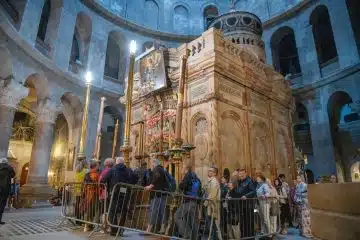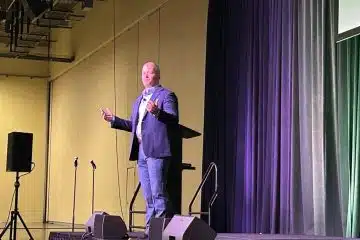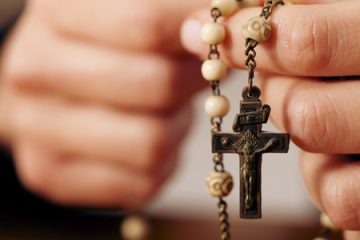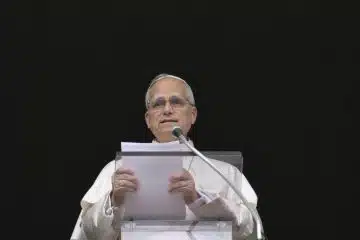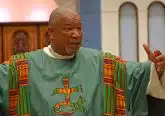Being Pro Life: Racism Is an Issue of Dignity
 A young, African-American, Catholic boy was at Mass at his local elementary school. He entered the communion line and properly held out his hands to receive, but the lay minister refused him. In this case, despite him presenting properly, she presumed the student wasn’t Catholic simply because he was black.
A young, African-American, Catholic boy was at Mass at his local elementary school. He entered the communion line and properly held out his hands to receive, but the lay minister refused him. In this case, despite him presenting properly, she presumed the student wasn’t Catholic simply because he was black.
This is one of many stories relayed to me in several interviews on the issue of racism. Of course, a racially motivated action like the one above is not in any way morally equivalent to killing an unborn child, or a terminally ill senior citizen, or even human trafficking. Nonetheless, it still breaks the heart of a child and parents, and shows that forms of racism still exist, even in our Church.
So why is racism the subject of a column devoted to Pro-Life issues? St. John Paul II in an address to pilgrims prior to a conference against racism said, “Every proper conscience cannot help but decisively condemn racism in whichever heart or place it lurks” (Aug. 26, 2001). The U.S. Bishops in their recent letter, Open Wide Our Hearts, write, “Racist acts are sinful because they violate justice. They reveal a failure to acknowledge the human dignity of persons offended…” (p. 1). Even the Pastoral Plan for Pro-Life Activities mentions racism as an issue that must be seriously addressed in any politics concerning human dignity (p. 3). Racism is an issue related to the dignity of human life, and that makes it a pro-life issue.
This month’s interview features several people. None of them claim that the United States is still living in an era equivalent to the Jim Crow days, when legislation required separation of whites and “persons of color” with public transportation and schools. None of them deny that great strides have been made since the time of the civil rights movement. They do recognize, however, that vestiges of racist behavior continue, even at times with the most enlightened among us. Their stories are reminders to us all that we need to continue to be open to conversation, dialogue and conversion of heart, that we may better see how our behaviors can at times exude a spirit of racism that we do not even intend.
So what can we do, especially those of us who do not believe ourselves to be racist at all? One of the persons I spoke with suggested that we simply surround ourselves with and befriend more people of different races. If that is not already the case in our neighborhoods, schools and faith communities, then seek it out through volunteer activities. Find ways to deliberately expose your children to diversity. Coming up on Friday, March 8th, from 3-5 PM at the University of Dayton, is a free event where bishops from across the country will join Archbishop Schnurr and local clergy, religious and lay persons to hear stories about the impact of racism still present today, as well as celebrate how God has moved people who have been affected, to healing. To register for that, contact Deacon Royce Winters at [email protected].
In addition, we have yet to have here in the United States an African American canonized as a saint. So on Saturday, March 30, we will have a day to pray and reflect on the lives of six African Americans being considered for canonization. The event is free and includes lunch. Again, contact Deacon Winters to register for that.
This is the sixth topic of a 12-month series, focusing on a different aspect of Respect Life issues each month.
This month’s video:


